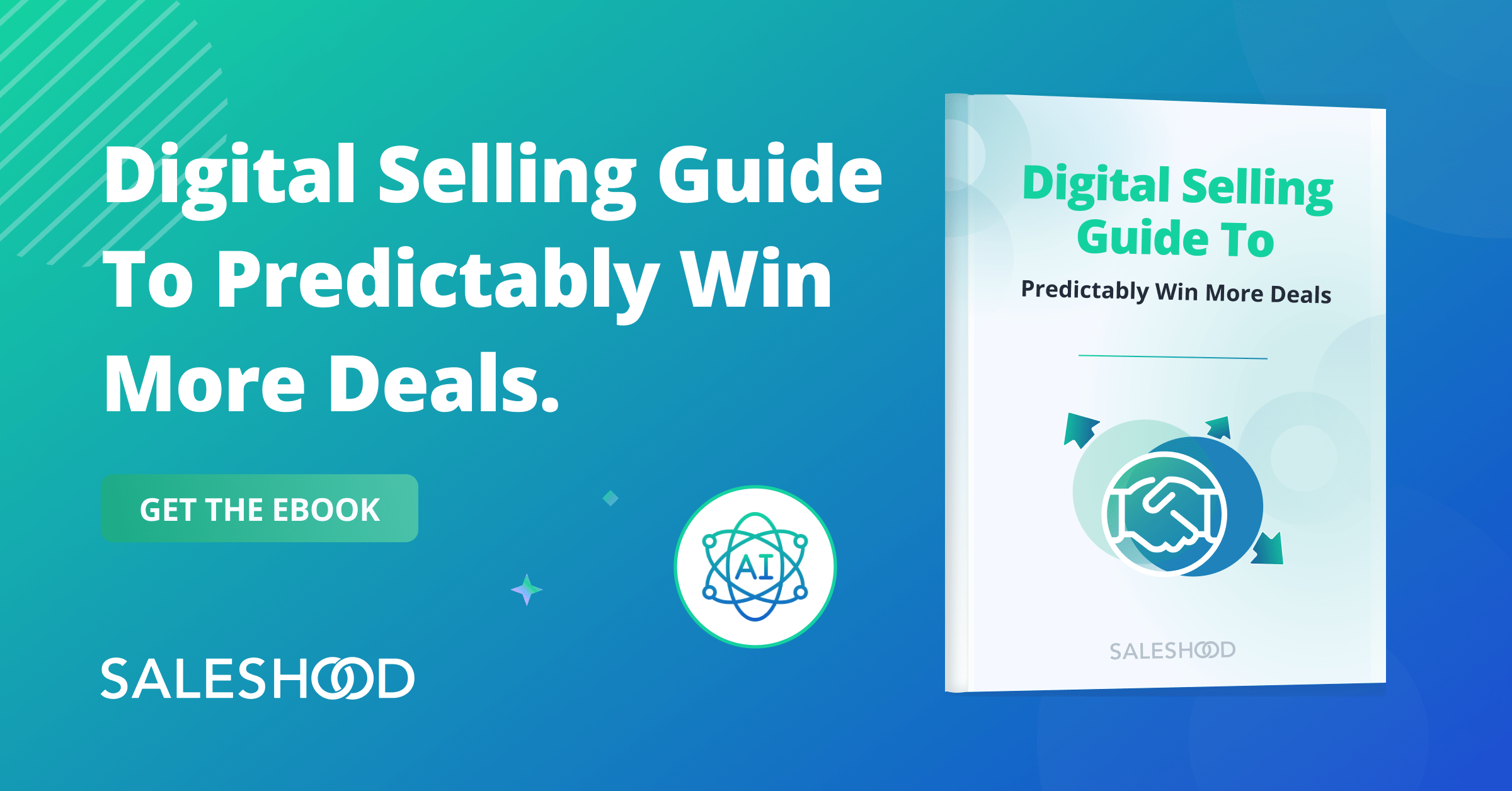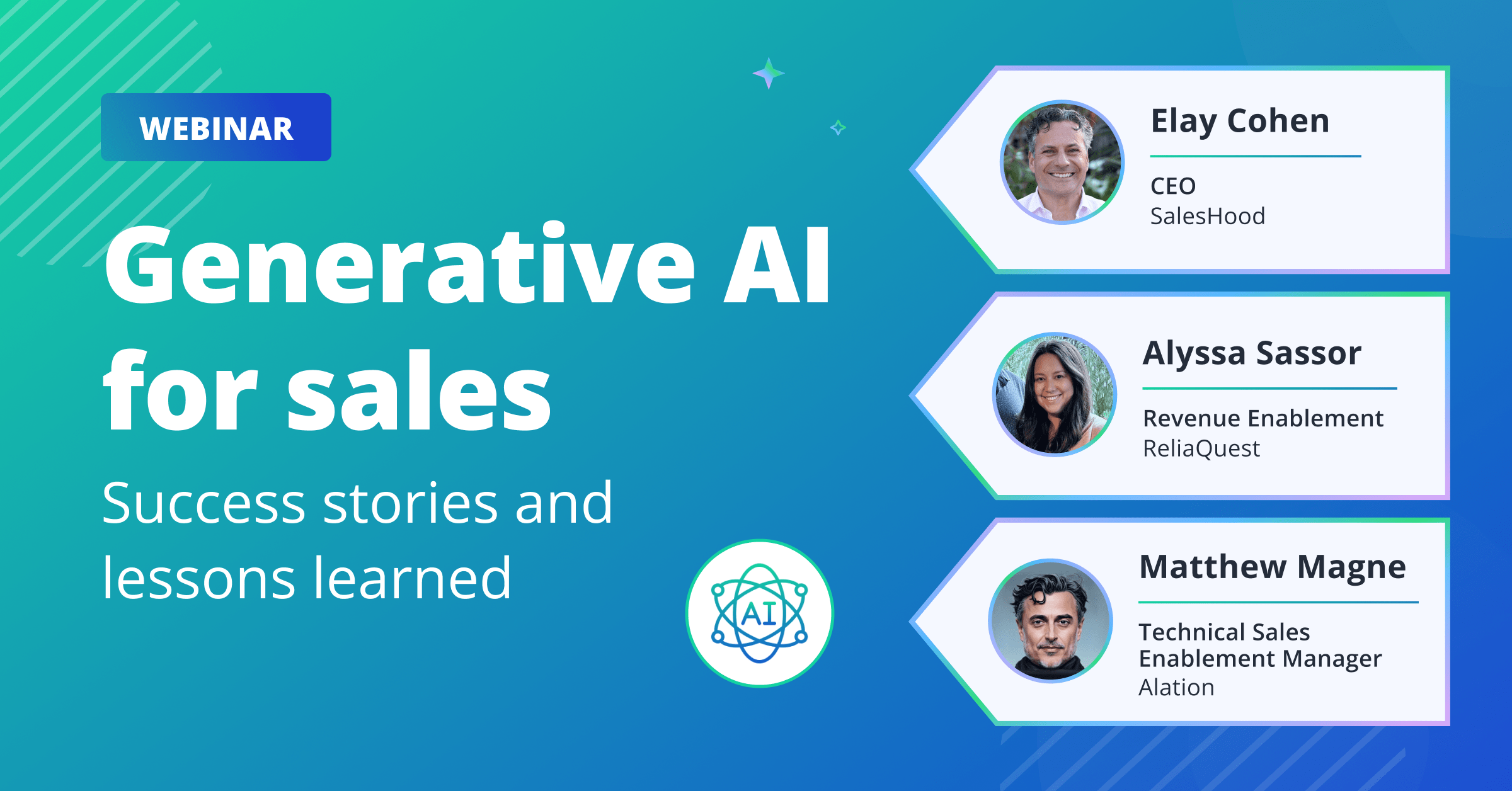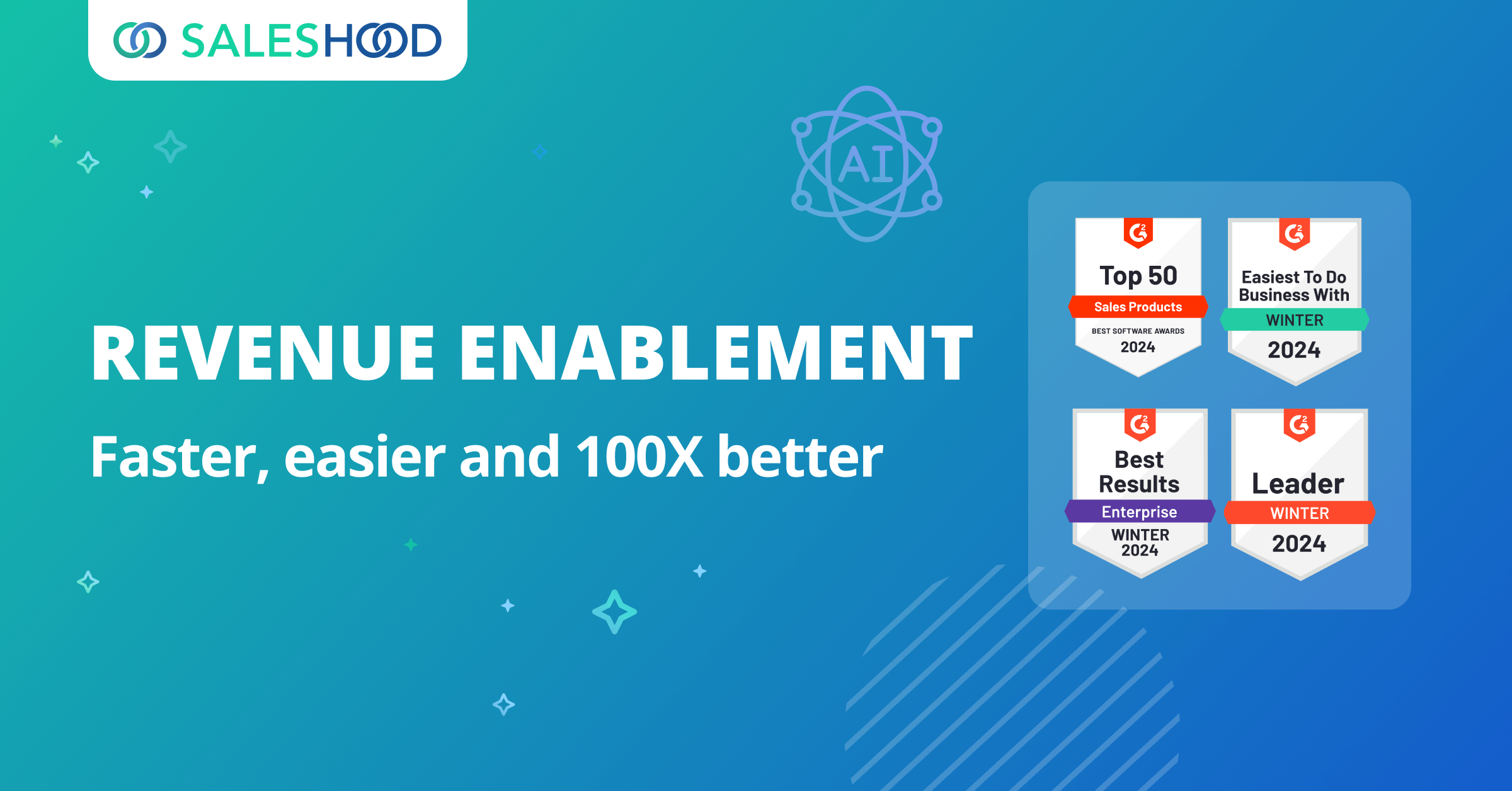Sales enablement is crucial for revenue growth, but it comes with many challenges. It’s common to struggle with sales tasks like efficiently onboarding reps and sales forecasting. However, generative AI capabilities help tackle the problem head-on.
By streamlining aspects of the sales process, AI enables organizations to achieve more with less. In this post, we’ll cover the part AI plays in modern sales enablement and how you can implement AI in your sales organization.
The role of AI in sales enablement
Wondering how artificial intelligence fits into effective sales strategies? Take a look at these ways that AI-powered tools help more sales teams hit their numbers.
Readiness
AI is revolutionizing sales enablement by optimizing stages of the sales journey. It begins with onboarding and readiness. AI makes it possible to certify sales reps faster and build conversational confidence.
Content
When it comes to content, AI goes beyond assisting with creation and curation. It makes sales assets easily accessible to reps. This ensures that they have the right resources at their fingertips.
Engagement
The impact of AI also shows when the technology can support reps during live sales conversations. Using AI, sales reps can execute consistently and present themselves in the most polished way possible.
Plus, they can use AI to gather the real-time insights they get on sales calls. Research shows that 73% of sales professionals agree. AI can help them pull insights from data they otherwise wouldn’t be able to find. This can make all the difference in closing deals.
How AI connects the dots in sales
Sales enablement consists of those core components: readiness, content management, and buyer engagement. However, those components don’t exist in silos. The sales process works best when you tie them together, and AI can help reps do just that.
Imagine a trained sales rep engaging with potential customers through a Digital Sales Room. AI will recommend the most relevant content for that interaction, bridging content management and buyer engagement. AI will also feed actionable insights from these engagements into the training process to improve your new hire onboarding and ramp time.
How AI supports lean sales teams
When teams are small or a company faces downsizes, sales leaders are often put in a tough spot. Expectations remain high, despite having fewer resources. This is another area where AI will shine.
This is because AI steps in as a productivity multiplier that cuts down on repetitive tasks. In fact, 78% of sales professionals say that using AI helps them focus on more critical work. Take sales coaching as an example. SalesHood’s AI Coach uses generative AI to efficiently keep teams in sync and on message with real-time and personalized pitch feedback.
This provides sales representatives with valuable insight into their performance, reducing reliance on sales manager input. Companies rely on AI sales coaching to give reps the feedback they need. This works by:
- Delivering relevant and useful feedback.
- Giving feedback on tone, keywords used and avoided and key messages.
- Efficiently keeping teams in sync with the latest messaging.
That’s just one of the ways that AI boosts productivity. Organizations of all sizes should be uncovering valuable use cases and benefit from using AI. But before they can focus on implementation, they need to get stakeholders involved in adoption of these sales tools.
The state of AI adoption in sales organizations
When it comes to AI, some sales organizations haven’t explored the possibilities at all. Others have jumped right in to see what benefits come with working with the technology. There are a few factors at play here.
Company size and legacy processes influence the pace of AI adoption. Smaller, more agile companies tend to embrace these sales technologies more quickly. Larger organizations with a network of processes and systems may take longer to get on board. They may also try developing their own AI solutions.
However, developing AI in-house can be more difficult than some organizations realize. Larger companies might have the resources to develop AI. But, once they realize the amount of effort and money associated with doing so, they often choose to work with a vendor who already offers the AI capabilities they need.
Most companies recognize the value of artificial intelligence in the sales cycle. It’s not a question of if, but when and how they will embrace these capabilities. Every organization takes this on at its own pace.
Understanding responsible development of AI for sales
Artificial intelligence was just a fuzzy concept or a buzzword in the not-so-distant past. Now that it’s driving real change, it’s important to understand what goes into responsible development and choosing solutions you can trust.
Some vendors make big promises about artificial intelligence replacing human roles entirely, but that isn’t reality. The focus should be on solving practical problems that affect everyone. That means things people can identify with, not claims like firing all SDRs and using artificial intelligence in sales to replace the human element.
Additionally, responsible AI development involves addressing concerns around data privacy and security. There’s a lot of confusion around privacy when building custom models versus building the infrastructure for language models to access only the right content. Make sure you understand the approach that any vendor or development team is taking before making any business decisions.
Ready to increase sales effectiveness with AI?
As AI capabilities evolve, sales teams that embrace these technologies responsibly will be positioned to boost sales performance. The future of business success is intertwined with artificial intelligence, and smart adoption is the key to hitting sales goals.
You can hyper-personalize customer interactions with SalesHood AI by guiding sellers on what to do, what to share, and what to say to improve productivity and predictability. Want to find out why our customers are saying SalesHood AI is accessible and a true competitive differentiator in the sales landscape?
READ NEXT:
ChatGPT for sales: A comprehensive guide to improving sales processes
Why digital sales rooms are the new marketing frontier
What is sales enablement? The complete guide to getting it right



